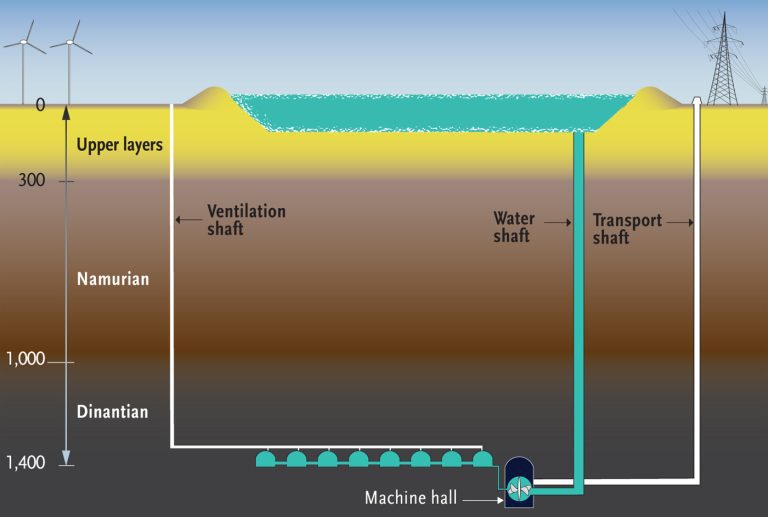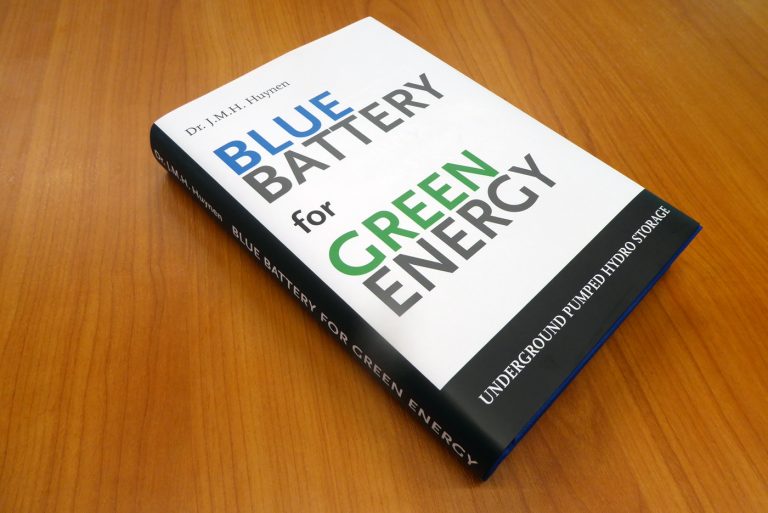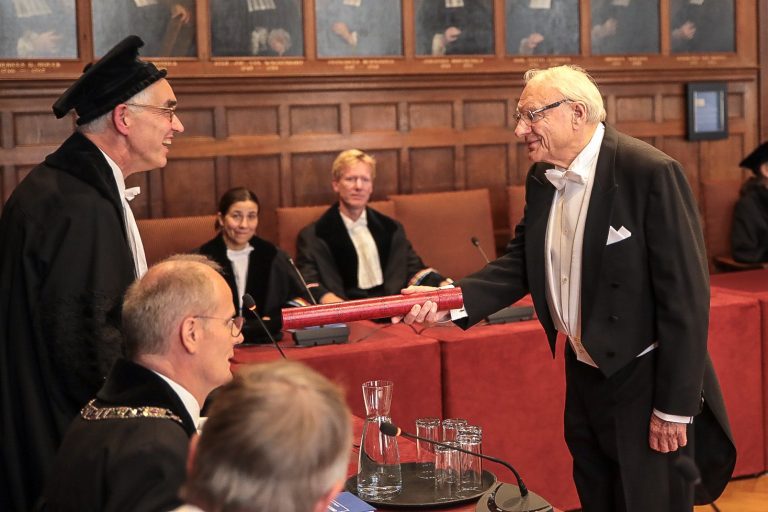Holland needs an underground hydroelectric storage plant as the share of renewable energy grows, says brand new Doctor Jan Huynen. What inspires this 86-year-old?
Dr Jan Huynen at his second PhD defence. (Photo: Aron Nijs Fotografie)
Doe mij maar Nederlands
Economist, energy expert, and serial entrepreneur, Dr Jan Huynen defended his second PhD thesis Blue Battery for Green Energy at Utrecht University on Thursday 20 September. Earlier, back in 1973, he received a PhD in social sciences from the same university. TU Delft Emeritus Professor Han Vrijling was his co-supervisor, next to PhD supervisor Professor Gert Jan Kramer of Utrecht University.
Huynen argues that, as the share of variable renewable energy rises from its current 8% to 63%, the Dutch power grid will need a large-scale power storage system to stabilise the imbalance between production and demand. Pumped hydro, also known as the blue battery, would be a viable option, says Huynen.
In mountainous countries, water can be pumped up from a lower to a higher basin to store electrical power. When a power shortage occurs, the water flows back downhill through the turbines and produces electricity.
 Illustration: Jan Huynen
Illustration: Jan HuynenIn a flat country like the Netherlands, one has to drill down to create a height difference between two basins. This type of installation is called Underground Pumped Hydro Storage (U-PHS) or Flatland Large Scale Electricity Supply (FLES).
Huynen presents a design of 1,400 metres of depth, a pump or generator power of 1,400 megawatt (comparable to a large power plant) and a storage capacity of six hours (8.4 GWh). Such an installation, constructed in the hilly landscape of Limburg, would cost 1.8 billion euros to build. Assuming that the price of power stabilisation will rise considerably over time, the investments will turn out to be profitable. Not to mention the effect of job-creation in this remote region.
The idea is far from new. Indeed, Huynen was involved in the development of the first ideas from 1986 onwards. The technique was then called O-PAC (Ondergrondse Pomp Accumulatie Centrale).
Thirty-two years later, the idea now reappears in the spotlight in the context of CO2 reduction and an increasing share of variable renewable energy. Huynen was surprised to learn that most of the Dutch energy experts were unaware of the potential of hydro storage. This discovery was a motivating factor in writing his thesis and book.
 Book Blue Battery
Book Blue BatteryAnother motivation is his sense of ecological responsibility. “We all share the responsibility of bringing about a cleaner environment and a more sustainable society in order to preserve this planet for future generations, our children and grandchildren.”
The PhD thesis has been published by Delft Academic Press. There’s a copy of the book on the TU Delft Library reading table. Just ask the hosts on duty.
 (Photo: Aron Nijs Fotografie)
(Photo: Aron Nijs Fotografie)Do you have a question or comment about this article?
j.w.wassink@tudelft.nl

Comments are closed.